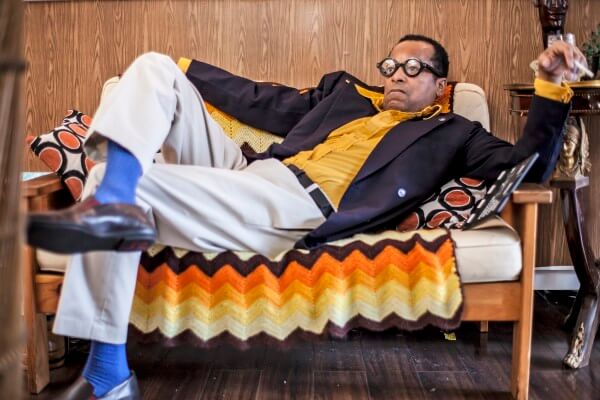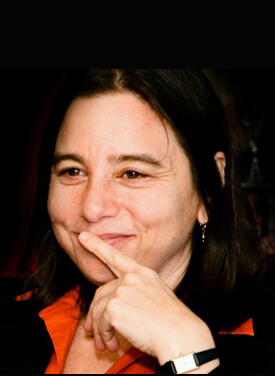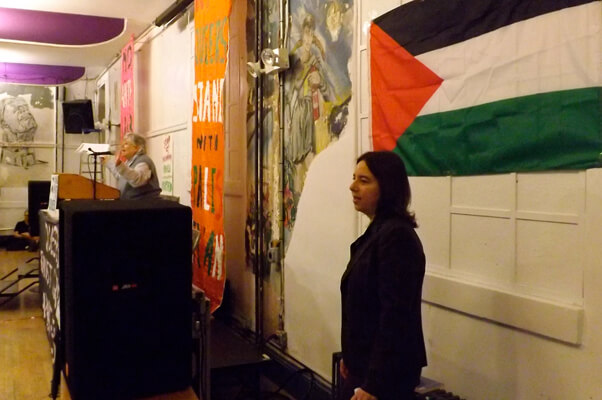Stephen Winter’s audacious fiction “Jason and Shirley” considers what might have transpired when Shirley Clarke (Sarah Schulman), a straight, white, Jewish filmmaker, interviewed the black gay prostitute and would-be entertainer Jason Holliday (Jack Waters) for her landmark 1967 film “Portrait of Jason.”
The real-life 12-hour interview session took place on December 3, 1966 at Clarke’s Chelsea Hotel penthouse apartment. It yielded a cinéma vérité documentary long celebrated for its depiction of an African-American gay man. A credit at the end of Winter’s film explains that “Portrait of Jason” is still said to be “the only film starring a black gay man which is considered essential viewing by film critics.”
Yet, “Portrait of Jason” was also condemned upon it release, with accusations that Clarke exploited her subject.
Despite strong performances, Stephen Winter’s imagining of 1967 “Portrait of Jason” backstory falls short
Similarly, Winter’s “Jason and Shirley” can be both praised and faulted. The film raises salient points about race, class, sexuality, truth, and art, but it also suffers from too often seeming like a stunt. Viewers may accept this mockumentary as an imagining or even a satire, but its real intentions are never clear. This ambiguity may be deliberate, but viewers are likely to be frustrated by not being able to believe what they see.
In fact, there are several factual errors in the film: Clarke displays her Oscar, but she never actually won one (she was not on the Academy’s nomination ballot for “Robert Frost: A Lover’s Quarrel With the World,” for which she got a director’s credit). “Jason and Shirley” takes place during the day, but the real interview began at 9 p.m. and was shot overnight. This disregard for the truth may be Winter taking poetic license, but it feels like sloppiness.
“Jason and Shirley” opens with Jason being late and a frustrated Shirley talking with Nico (Eamon Fahey), her young production assistant. When Jason finally arrives, he eyes Nico, calls him a “hot chicken,” and has him fetch gin cocktails and light his cigarettes. Jason rejoices in his power as a black man ordering a white guy around. Jason is clearly a boisterous force of nature, and Shirley quickly plays to his vanity and need for celebrity to get him to deliver what she wants. He, in turn, asks for money when not performing for the camera or telling off-color jokes that get reactions from Nico.
If Shirley is seething as Jason wastes her time, viewers might be simply exasperated, waiting for the film to start in earnest. Only when Shirley presses Jason about why he lies all the time does “Jason and Shirley” finally crackle.
This is not to say that the performances by the two leads are not spot-on. Both Schulman and Waters fully inhabit their roles and are great fun to watch. Waters is especially good with his comic timing, capturing both Jason’s flamboyance and his seriousness as he delivers his amusing one-liners. Schulman is ingratiating as Shirley, especially when she confides to Nico that Jason is doing everything she wants him to.
Interludes where Winter presents sequences that literally portray stories Shirley draws out of Jason ring false. When Jason describes working for rich white women, his insights about race, class, and sexual dynamics are reduced to absurdities when we se him hurling insults at his matron (Peter Cramer) and then kissing and fingering her on the floor.
Jason’s discussion of his would-be cabaret act is intercut with stylish fantasy performance scenes, but they are edited in a way that makes them merely distracting. When he is seen seducing Billy Boy (Mike Bailey-Gates), the scene never quite answers Shirley’s question, “What do you like about white men?” The episode, instead, is a clumsy sets-up for her inquiry about Jason being raped.
As Shirley questions Jason, we see how she is focused triggering certain responses and controlling him. He doesn’t want to talk about his father, but when she coaxes him to do so, his answer is illuminating. (Whether it’s true is another matter, but beside the point.) When Shirley takes Jason up to the roof during a break in filming and asks him, “Is what you want the world to see of you already in the camera?,” the moment is a canny one. It’s unfortunate that the jazz background music in the scene undercuts its raw emotional power.
This struggle between these indomitable characters is a fascinating one, but in “Jason and Shirley” it too often comes off as contrived. We do, however, come to understand that though Jason may be disruptive, he has no illusions or real agenda with the interview; he is what he is –– which was the point of “Portrait.” Shirley, at moments, comes off sympathetically as she works to get what she wants –– or says she wants –– from Jason, but when she instructs an actor, Carl Lee (Orran Farmer), to “break” him, she seems merely manipulative. This may be her truth, but the film lets the viewers decide.
“Jason and Shirley” tries to have it both ways — presenting truth and creating illusion. That’s a contradiction it can’t quite pull off.
JASON AND SHIRLEY | Directed by Stephen Winter | Oct. 20-27 | Museum of Modern Art | 11 W. 53rd St. | moma.org




































